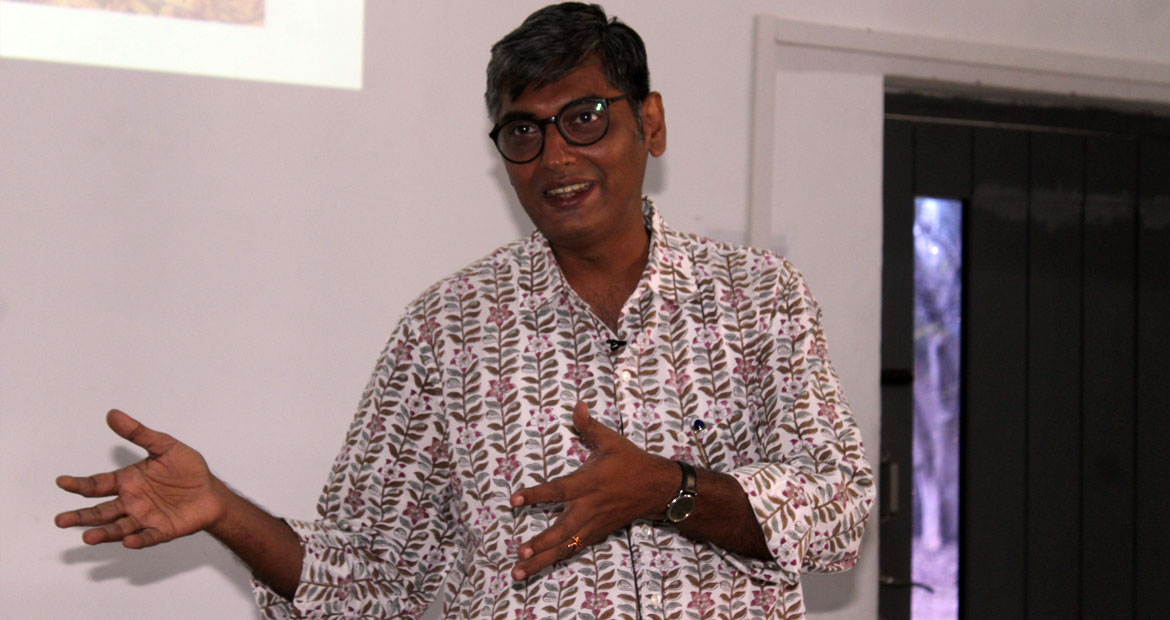
Economic transformation should begin from farmlands: T.R. Vivek
A better understanding of the food and agriculture sector in India is an essential and handy tool for every journalist, said T.R. Vivek, editor and co-founder of The Plate. He was talking to the students of the 2023-24 batch at the Indian Institute of Journalism & New Media (IIJNM).
In a country where half of the workforce is engaged in the agriculture sector, in a country which is the largest producer of several food items and has the second largest bank of agricultural land, the stories that come out of the agriculture sector are that of distress, he said.
The prime reason for this distress is the market inefficiency where no food produce reaches the consumer without wastage or price escalation, T.R. Vivek continued. More than 10 percent of the produce is wasted due to disorganised supply chain, lack of storage facilities and inefficient logistics.
The other reason for this distress, he said, is climate change, as the agriculture sector is the biggest victim and contributor to climate change. Agriculture should be made more efficient and climate resilient, he added.
“Half of the country’s workforce who are engaged in agriculture, produces only 20 percent of the GDP. Therefore, economic transformation has to begin from farmlands,” he said.
A deeper overview of the Indian agriculture sector is vital for journalists to bring into light hard stories from the field, he said.
“The highest purpose of journalism is to be able to explain the complexity of information to common man,” he said.
He reminded the students about the moral duty of journalists to use their privilege to focus on real issues and to empower people with information. He also spoke about the need to report agriculture in exciting ways to draw the attention of the audience.
T.R. Vivek emphasized that journalism should always be user-centred to keep up with the demand of the audience. “Even with artificial intelligence, human reporters cannot be replaced,” he said.
He also had an interactive session with the students and faculty, engaging in meaningful conversations about the food and agriculture sector.
By Ashna Mariam George
